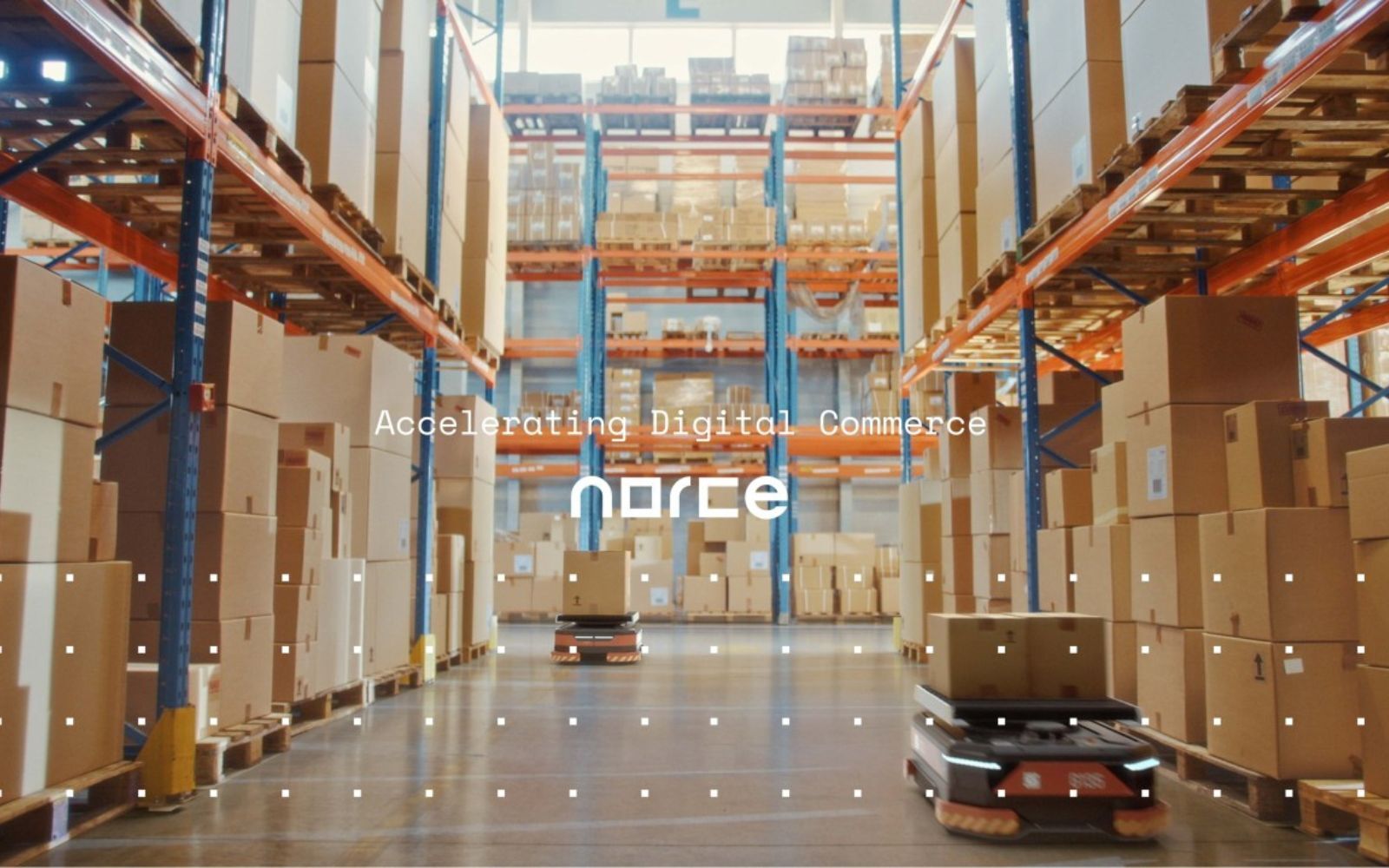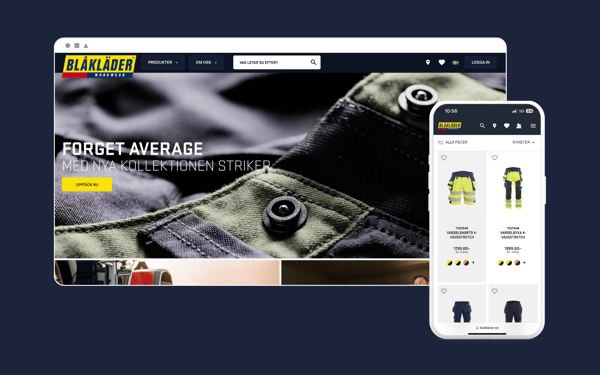In this blog, Emil Lissborg Nordenskiöld, Head of Sales at Norce, explores the strategic value of self-service in B2B e-commerce. He highlights how it can drive operational efficiency, elevate the customer experience and unlock new revenue. You’ll also find concrete examples of self-service features to inspire your next step towards a modern, API-first B2B commerce setup.
B2B commerce is changing – fast
Traditional sales models are being rapidly replaced by digital channels. According to analysts, by 2025, 80% of all B2B interactions will take place online. Today’s professional buyers expect the same seamless self-service experience they enjoy as consumers. PwC even predicts that within a decade, every product and service will have a digital purchasing or self-service option. For B2B businesses with complex commercial logic, this shift presents both immense opportunity – and pressure – to deliver digital tools that empower customers to manage their own business efficiently.
B2B buyers demand digital self-service
Today’s buyers are in control of their purchasing journey. Most research and comparisons are done before speaking to a sales rep. In fact, 83% of B2B buyers now prefer placing orders and managing payments digitally over going through traditional sales channels.This shift is driven by several factors. One is generational: by 2025, millennials – who’ve grown up with digital commerce – will make up 70% of the global B2B buying population (Forrester). Another is access: rich, accessible online information means customers are more comfortable making decisions on their own.

Greater efficiency, internally and externally
Self-service doesn’t just benefit customers – it boosts internal efficiency as well. When clients can handle everyday tasks themselves, such as placing orders, checking stock or reviewing order history, your sales and support teams are freed up to focus on more valuable work. Studies show that customer service costs can be reduced by up to 30% through the introduction of self-service portals. Moreover, common queries can be resolved up to 80% more efficiently through digital channels, leading to faster responses to customers and lower operational costs.
Self-service also scales effortlessly – thousands of customers can be served simultaneously without increasing headcount. Instead of acting as order takers, your salespeople can concentrate on strategic accounts and complex deals. It becomes a “hands-free” sales channel that works for you 24/7.
A better experience and happier customers
Convenience and control are paramount for B2B customers. With self-service, they get instant access to the information and functions they need – without waiting on a response. This mirrors the consumer-like experiences they already expect. More than half of B2B customers now expect service around the clock. A digital portal can meet this demand with ease.
In fact, 57% of B2B buyers prefer to find information online rather than speak to a sales rep. And 40% say the quality of the digital experience directly impacts their choice of supplier. A streamlined, intuitive self-service solution is now a critical factor in customer satisfaction and loyalty. Customers who can easily access product information, view their contract pricing, place orders and track their cases are more satisfied – and they tend to return more often.

A growth engine, not just a support tool
Self-service can be a direct driver of increased sales. When customers can place orders whenever they like, you reduce the risk of lost business – and capture revenue even outside office hours. A smooth digital journey also supports repeat purchasing and upselling. Customers who are free to explore your product range are more likely to discover additional items and increase basket size. Even larger, high-value B2B transactions are increasingly going digital – 70% of decision-makers are willing to spend over $50,000 online, and over a quarter would go beyond $500,000 without human interaction. Failure to meet these expectations can cost you. According to research, 90% of B2B buyers would switch to a competitor if a supplier’s digital experience didn’t meet their needs.
And it’s not just about customers. Self-service boosts sales productivity. With routine orders handled by the portal, your team can spend more time building relationships and driving strategic growth. According to Salesforce, self-service enables reps to focus on activities that actually generate revenue – not admin. The result is a more proactive sales approach that ultimately drives even greater revenue growth.
Examples of efficient self-service in B2B commerce
To realise the full potential, you need the right features. Here are a few that create real value in modern B2B commerce:
- Personalised customer portals – Logged-in customers see their unique assortment, contract pricing and live stock availability.
- Order history & reordering – Customers can view previous orders and quickly reorder frequently needed items.
- Procurement lists (wishlists) – Save items for future use or repeat purchases, streamlining buying processes.
- Self-service quotations – Customers can configure products or select options online and get instant pricing, or request quotes directly via the portal.
- Delivery tracking & returns – Track deliveries in real time, initiate returns or lodge complaints without contacting support.
- Multi-user accounts & approval flows – Enabling a customer organisation to have multiple users with tailored permissions (e.g. purchasers, managers), and built-in approval workflows for order authorisation when required.
- System integrations – For example, punch-out or EDI integration that connects the customer’s own procurement system with your e-commerce platform, allowing them to manage orders within their system with seamless data transfer to your platform.

Power self-service with an API-first platform
Building these capabilities in a complex B2B environment requires a flexible and powerful commerce engine. Your platform must support customer-unique logic, dynamic pricing, and integrations with core systems like ERP, PIM and CRM. An API-first, headless architecture is often essential. It allows you to evolve front-end and back-end systems independently and add functionality through integration – without a full rebuild (headless commerce).
That’s exactly what Norce Commerce delivers. As a cloud-native, API-first platform, Norce Commerce is built to meet the demands of advanced B2B businesses. It handles complex product structures, hierarchical price lists and customer-unique terms with ease – while integrating seamlessly with your existing systems via open APIs. Thanks to a composable (modular) architecture, you gain the freedom to tailor the customer experience across every channel without compromising on performance or stability. With a modern partner like Norce, you can accelerate your digital transformation and fully unlock the potential of self-service.
Are you curious about how self-service could elevate your B2B commerce? Don’t hesitate to get in touch – at Norce, we’re always happy to explore how a modern, API-first commerce platform can meet your specific needs and help you take your digital business to the next level.



-2.png?width=600&name=Mail%20images%20600x400%20(1)-2.png)